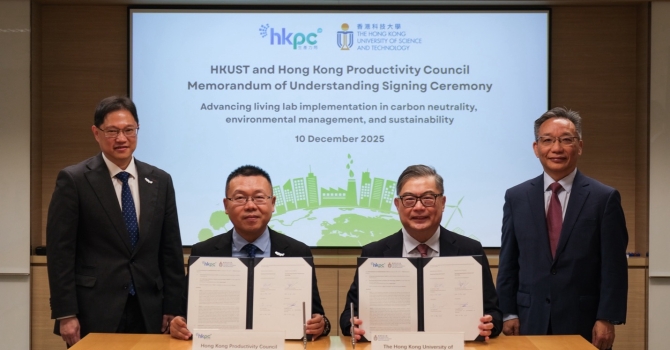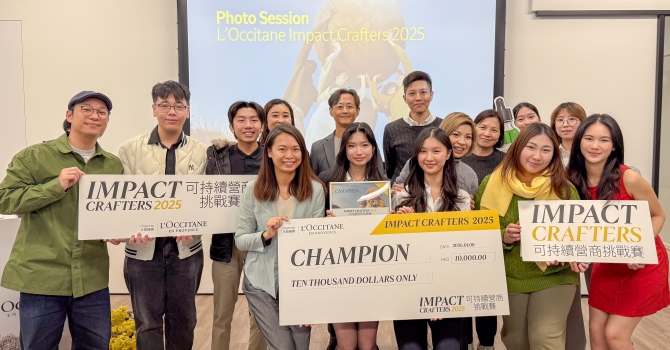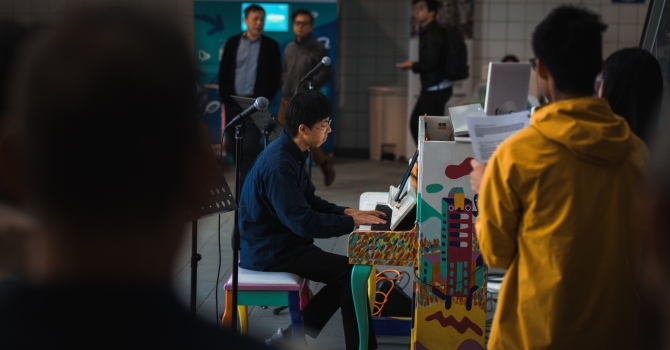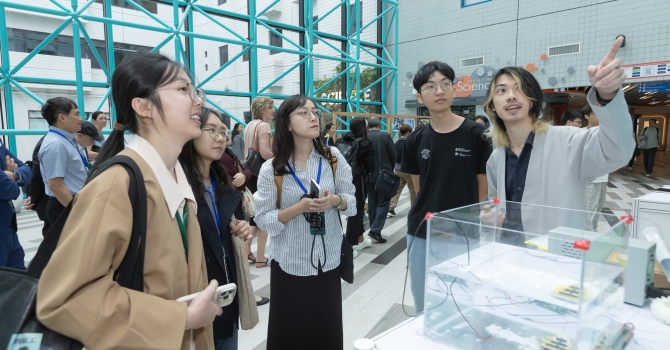Inspiring Sustainability: Next Gen Leaders in the Making
HKUST embraced a multifaceted approach to empower young changemakers and local community. In a recent display of dedication to sustainability and community involvement, we hosted a few impactful events that aim to inspire and create opportunities for the next wave of sustainability advocates with educational outreach, providing education for SDGs in the wider community.
The One Earth NextGen Leaders Programme
The One Earth NextGen Leaders Programme organized in March 2025 was collaboratively orchestrated by the Institute of Sustainability and Technology (IST) and the Temasek Foundation, which united over 100 young changemakers from Southeast Asia, Hong Kong, and Mainland China. This dynamic program saw NexGen Leaders engage in immersive workshops, collaborative projects, and thought-provoking discussions centered on sustainability.
The final day of the programme was kicked off at the HKUST Sustainable Smart Campus (SSC) hub and the HKUST Entrepreneurship Center, where our NextGen Leaders learned how to use the campus as a living lab to test their ideas and utilize university resources to pursue their entrepreneurial dreams. The day culminated in an Ideathon, showcasing the brilliance of NextGen Leaders in presenting innovative solutions. Judges including Dr Kenneth Leung, Director of HKUST Sustainabiity/Net-Zero Office were captivated by the creativity and dedication displayed, reflecting a promising future for sustainability.
The programme stands as a beacon in empowering young leaders to tackle pressing environmental and social challenges. We are honored to be one of the partners for this meaningful initiative.
ESF Schools Visit
During the ESF school visits in March 2025, HKUST continued its mission to educate and inspire the younger generation about sustainable practices. Welcoming 30 student ambassadors and teachers from ESF King George V School and ESF West Island School, the Assistant Director shared the HKUST’s sustainability vision, including its target to increase renewable energy generation, increase energy efficiency and etc. Other team members also shared student-led and community outreach initiatives, and details about the living lab projects.
Winning teams from this year’s Living Lab Student Competition—Receipt Fly, ReUST ReLoved, and UST Corer— were also invited and shared their innovative solutions to campus challenges. The visit also provided them insights into our SSC projects led by faculty on their research.
Continuing the enthusiasm, we hosted 120 energetic Year 6 students from ESF Clearwater Bay School the next day. Through campus tour and interactions with project manager, students gained practical experiences related to renewable energy system and sustainability initiatives. bridging the gap between theoretical knowledge and real-world applications. In addition, They learned about the importance of energy efficiency and clean energy. It serves as an evidence that HKUST actively promotes renewable energy adoption beyond its campus through various initiatives.
The visits not only offered a glimpse into sustainable campus practices but also empowered students to become ambassadors for sustainability within their own educational communities. Through these collaborative efforts, HKUST hopes to nurture sustainability through community engagement, inspiring individuals of all ages to embrace environmental stewardship and work towards a more sustainable future.
Living Lab Tour for HKFYG Students
Another tour was hosted for HKFYG students in February 2025 to explore green technology in HKUST.
Students engaged with various innovative projects, including the Food Waste Dashboard, which analyzes food consumption and waste in LG1 canteen, as well as Receipt Fly and UST Corner, aimed at enhancing campus sustainability. The AI Ambassador project showcased how AI can improve communication, while the Sustainable Smart Marine Grid focused on underwater surveys and trash cleanup to protect our marine ecosystem.
University students also shared their creative solutions, such as a project on harnessing atmospheric humidity for renewable water and the Energy Kiosk, which addresses electronic waste. The Alcarbo project introduced a cutting-edge carbon capture solution, while the Black Soldier Fly Team demonstrated how to transform food waste into organic compost. The vertical garden project showcased how to reduce the demand for land and water in agriculture and promote a new model of mobile food production, thereby promoting sustainable land management for agriculture. Additionally, the Butterfly Garden project aims to create a vibrant ecosystem on campus, and the Nano Coating project at the renewable-generating photovoltaic panels site of the campus, highlighted the potential of nanotechnology in reducing manpower needs.
Overall, the tour was not just inspiring but also a fun adventure into the world of sustainability and innovation. It was a fantastic opportunity for students to engage with ideas that could shape a more sustainable world while having a great time learning and collaborating.



